Q&A: Georgia's high-stake polls - US concerns, Russian claims, & rising tensions Oct 26 polls pit pro-Western against pro-Russian forces
As Georgia gears up for its crucial parliamentary elections on October 26, 2024, tensions are running high both domestically and internationally. The election has been framed as a battle between pro-Western and pro-Russian forces, with significant implications for Georgia's future. The Q&A delves into the key players, Russia's accusations of a color revolution by the West, and the current political mood in Georgia.
Q: What is the significance of the upcoming parliamentary elections in Georgia?
A: The parliamentary elections on October 26, 2024, are pivotal for Georgia, marking a decisive moment in the nation's political trajectory. Georgian President Salome Zurabishvili has emphasized that this election is not just a routine political event but a critical choice between aligning with the West or falling back into Russia’s sphere of influence. The outcome will shape Georgia’s future, either propelling it towards European integration or pushing it back under Russian dominance.
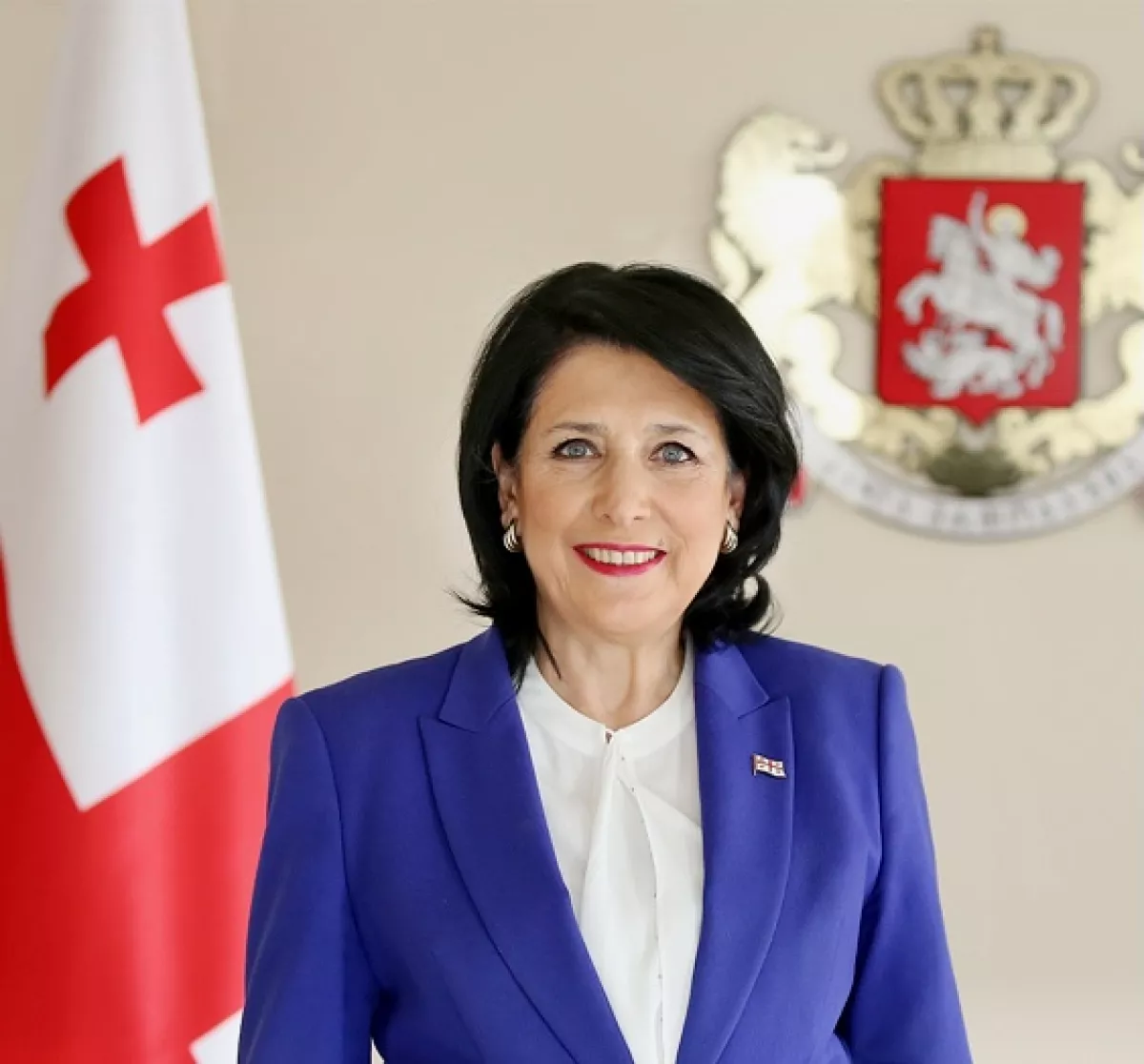
“We are not dealing with normal elections” in which a citizen votes according to his political taste, but “we are dealing with saving the future of the country” and that “our choice today is existential,” Salome Zurabishvili said, adding that “this choice will determine the fate of the country for many years to come”.
Zurabishvili said that “it is a lie” when “they try to convince us that the elections will be about the choice between ‘war and peace,'” as the ruling Georgian Dream party frames it.
Zurabishvili also condemned Ivanishvili’s April 29 speech, calling it “belligerent” and saying Ivanishvili had declared war “on his own people and youth, on patriots” inside the country and the country’s international partners, outside. “Then we clearly found ourselves at the crossroads of our future, facing a critical choice: Either there will be a European, democratic, free, and indeed decent future, or there will be a return to the past, in the grip of Russia, which shows its cruelest and most merciless face every day,” Zurabishvili said.
Zurabishvili said the elections would be held under “really difficult conditions,” referring to government threats. She added that these threats of war and bans “mean nothing” because “there is no government that goes against its people and wins.”
“If everyone recognizes their own responsibility, if society is fully mobilized, then the votes and the stability and the future will be fully protected,” she said. There won’t be a second chance for such a choice, she emphasized.
Q: Who are the key players in the upcoming elections?
A: The primary contenders are the ruling Georgian Dream (GD) party, led by Prime Minister Irakli Kobakhidze, and the opposition, spearheaded by the United National Movement (UNM) and its coalition allies.
President Salome Zurabishvili, while a figurehead, has taken a strong stance against the GD, portraying the elections as a battle between pro-Western and pro-Russian forces. Various other opposition coalitions, including Ahali, Droa, and Lelo, are also significant players, each bringing its own set of challenges to the ruling party.
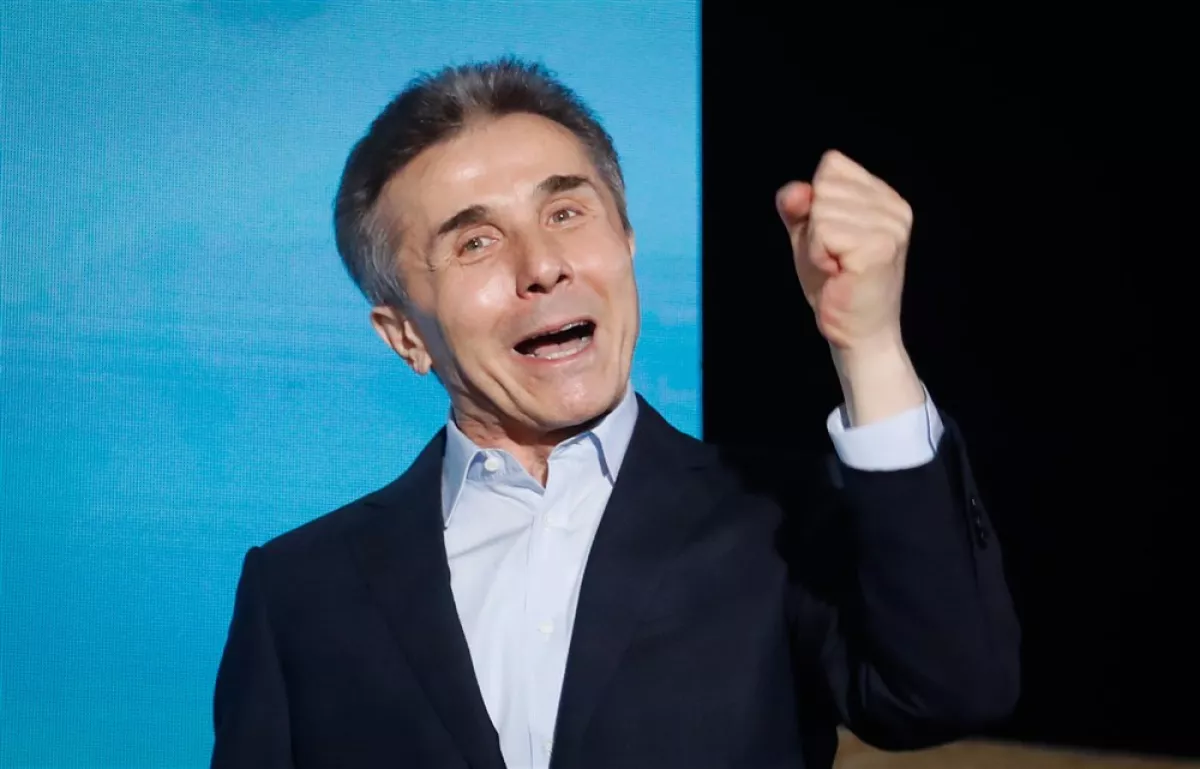
Q: Why is Russia so concerned about developments in Georgia?
A: The United States views Georgia as a strategic partner in the South Caucasus, crucial for regional stability and a counterbalance to Russian influence. Washington is concerned that the current political trajectory under the Georgian Dream could pull the country away from its Western orientation.
Russia is particularly alarmed by alleged US attempts to influence Georgian politics and the possibility of a “Tbilisi Maidan,” a scenario where post-election protests could lead to significant political upheaval.
Q: What is Russia’s stance on the Georgian elections, and what are their claims about a color revolution?
A: Russia has accused the West, particularly the US, of planning to instigate a color revolution in Georgia following the elections. Sergey Naryshkin, head of Russia’s Foreign Intelligence Service (SVR), stated that Russia is taking steps to prevent such an outcome, alleging that Western intelligence services are orchestrating efforts to destabilize Georgia and remove the Georgian Dream from power. These claims align with Moscow’s broader narrative of opposing Western influence in former Soviet states.
On August 26, TASS reported, citing Russian foreign intelligence sources, that the US is planning a “Tbilisi Maidan” after Georgia’s parliamentary elections to prevent the ruling Georgian Dream from remaining in power.
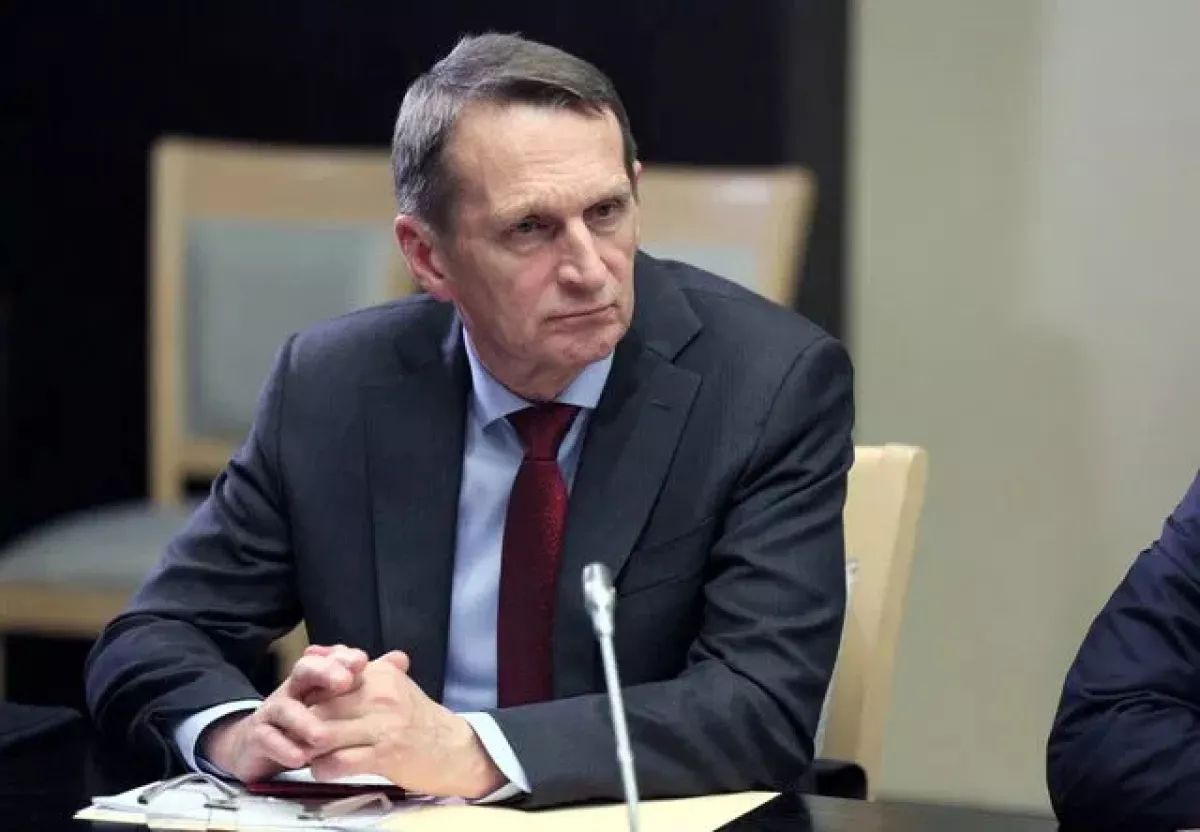
The SVR said it expects Georgian law enforcement to be “provoked” into “violently suppressing the protests,” which will lead to a “ruthless political and economic response” from the US. This is because the White House is “deeply dissatisfied” with how things are going on in Georgia, claimed SVR, and thus plans “Tbilisi Maidan” to “announce non-recognition of the election results and demand political change”.
Q: What is the current mood among the Georgian electorate?
A: The Georgian electorate is deeply polarized. Many citizens are disillusioned with the Georgian Dream’s performance, criticizing the party for its perceived authoritarian tendencies and failure to fully commit to European integration.
The president also said that the GD promised its people “revanchism,” “revenge”, “harassment,” “persecution of dissenters,” “restriction of free protest,” and “banning of political opponents,” as seen in the party’s regional tours. “In short, they promised us a one-party dictatorship,” Zurabishvili said.
However, there is also significant apprehension about the opposition, particularly the United National Movement, which many associate with past political turmoil. The electorate’s mood is one of uncertainty, with a growing desire for change but fear of instability.
Q: How are Georgian citizens reacting to the Georgian Dream’s governance?
A: Public sentiment towards the Georgian Dream is mixed. While some appreciate the stability the party has provided, there is widespread dissatisfaction with its approach to governance, particularly its perceived closeness to Russia.
The government's attempts to stifle dissent and its controversial laws have further alienated many voters. The president’s call for boldness and citizen mobilization reflects a growing frustration among those who believe the current government is leading the country away from its European aspirations.
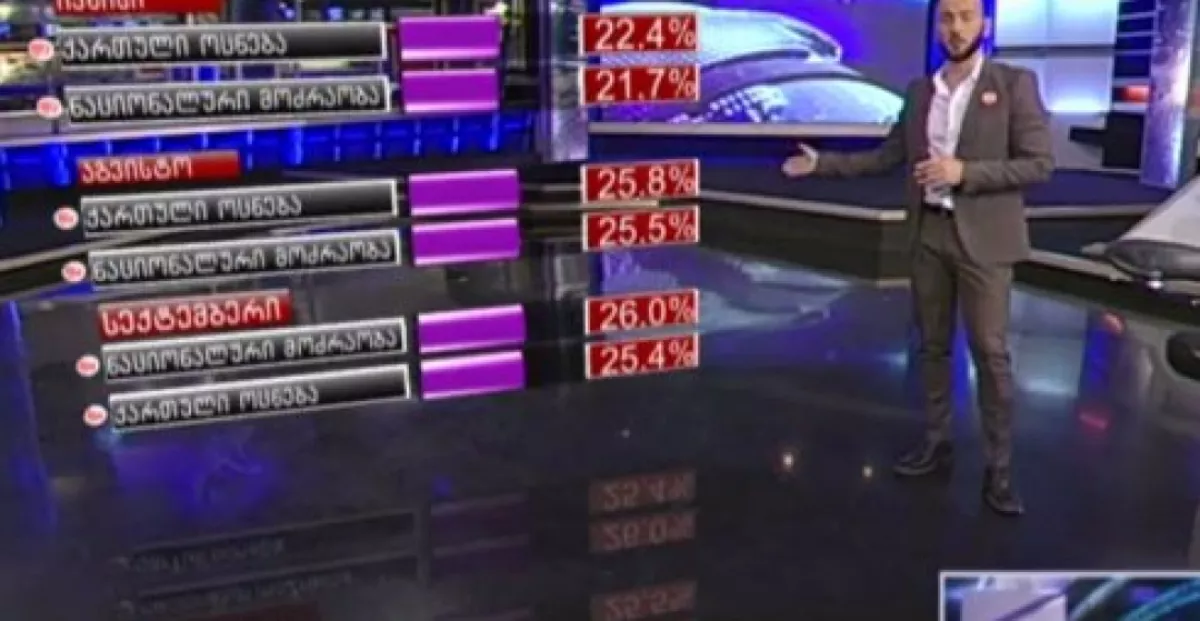
Q: What are the speculations regarding Russia’s involvement in Georgia’s engagement with Abkhazia and North Ossetia?
A: There is speculation in Georgia that Russia might be encouraging Tbilisi to engage with the separatist regions of Abkhazia and North Ossetia to gradually bring these territories under its influence. This could be part of a broader strategy by Moscow to destabilize Georgia and pull it away from the West. However, the feasibility of such a plan remains questionable, given the deep-seated animosities and the complex geopolitical dynamics at play.
Q: What is behind President Salome Zurabishvili’s recent statements?
A: President Salome Zurabishvili’s recent statements are aimed at rallying pro-Western forces and highlighting the existential nature of the upcoming elections. By framing the vote as a choice between “Europe or Russia,” “freedom or slavery,” and “dictatorship or democracy,” she seeks to galvanize the electorate against the Georgian Dream and its perceived pro-Russian stance. Her rhetoric is a direct appeal to those who fear that Georgia is drifting away from its European path.
Q: How reliable are Moscow’s claims about a color revolution in Georgia?
A: Moscow’s claims about a color revolution in Georgia should be viewed with skepticism. While Russia has a vested interest in maintaining influence over Georgia, its accusations of Western interference are part of a broader strategy to discredit pro-Western movements in the region. The reality on the ground is more nuanced, with the Georgian population deeply divided and the outcome of the elections uncertain. However, the fear of external manipulation remains a potent tool in Russia’s propaganda arsenal.
Q: What is the Georgian government’s response to opposition parties ahead of the elections?
A: The Georgian Dream, under the leadership of Prime Minister Irakli Kobakhidze, has taken a hardline stance against opposition parties. The government plans to ban parties allegedly affiliated with the United National Movement, framing them as criminal organizations working against the state’s interests.
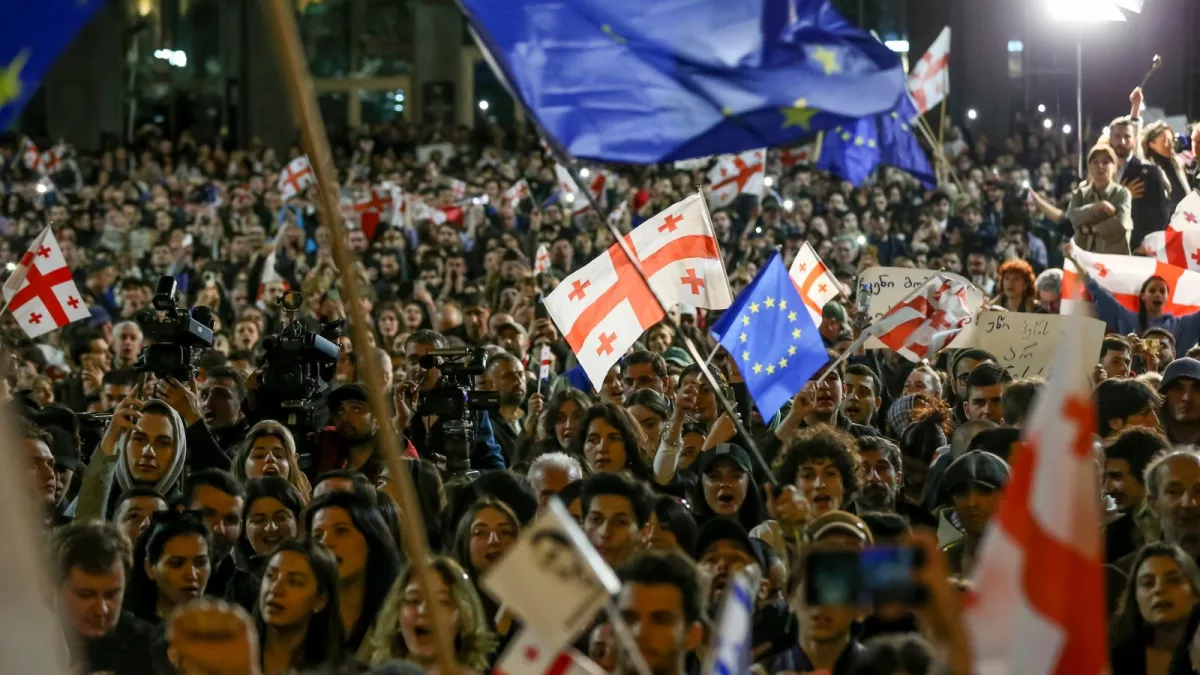
This approach has raised concerns about the fairness of the upcoming elections and the potential for political repression. The government’s strategy reflects a broader attempt to consolidate power and eliminate any significant challenge to its rule.
Q: How has Anonymous, an international collective of hackers, responded to the Georgian Dream's plans to ban opposition parties, and what specific threats have they made?
A: Anonymous, the international collective of hackers, has issued a stark warning to the Georgian Dream leadership following their announcements to ban opposition parties. In response, Anonymous threatened to launch a massive cyberattack if the ruling party persists with what they describe as an authoritarian agenda.
They conveyed a strong message to the Georgian Dream and Prime Minister Irakli Kobakhidze, stating that they would not tolerate this "blatant assault on freedom". Anonymous warned that by continuing down this path, the ruling party would "unleash a storm" beyond their control, promising to dismantle the government systems that are used to oppress the people.

Anonymous further emphasized that Georgia's democracy is "hanging by a thread," with the ruling party holding the knife that could sever it. The collective cautioned that the Georgian Dream might believe they can act with impunity, but Anonymous is vigilantly watching and prepared to act.
They warned that crossing this line would result in a reckoning with far-reaching consequences beyond Georgia’s borders. Anonymous closed their message with their signature statement: "We do not forgive. We do not forget. Expect us."
This isn’t the first time Anonymous has targeted the Georgian government. In May, during protests against the Foreign Agents Law, they hacked the websites of the Georgian Dream, the government-aligned media outlet POSTV, and the Georgian Foreign Ministry, demonstrating their capability and willingness to disrupt the government’s operations.








